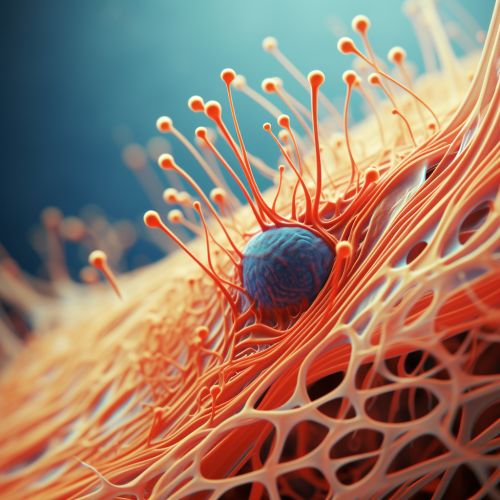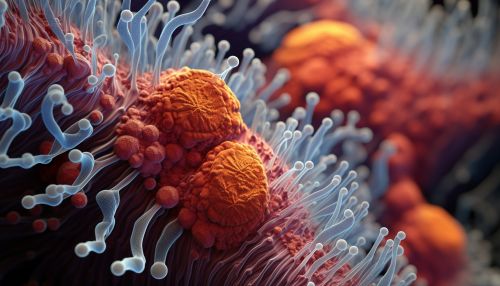Angiotensin II
Overview
Angiotensin II is a peptide hormone that plays a crucial role in the RAS, a hormone system that regulates blood pressure and fluid balance. It is a potent vasoconstrictor, meaning it narrows blood vessels, thereby increasing blood pressure. Angiotensin II also stimulates the release of the hormone aldosterone, which promotes sodium retention by the kidneys, an effect that also helps to increase blood pressure.


Biosynthesis
Angiotensin II is formed from angiotensin I through the action of ACE. Angiotensin I is a decapeptide (a peptide consisting of ten amino acids) that is produced by the action of renin on angiotensinogen, a protein produced and released by the liver. Renin is an enzyme that is released into the bloodstream by specialized cells in the kidneys in response to various signals of low blood volume or low blood pressure.
Physiological effects
Angiotensin II has multiple effects on the body, all of which contribute to increasing blood pressure. As a potent vasoconstrictor, it narrows the blood vessels, thereby increasing blood pressure. It also stimulates the release of aldosterone from the adrenal glands. Aldosterone acts on the kidneys to promote sodium retention and potassium excretion. Sodium retention leads to water retention, which increases blood volume and therefore blood pressure.
In addition to these effects, angiotensin II also stimulates the release of vasopressin, also known as antidiuretic hormone (ADH), from the posterior pituitary gland. Vasopressin acts on the kidneys to promote water retention, further increasing blood volume and blood pressure.
Angiotensin II also has effects on the central nervous system. It stimulates thirst, promoting water intake, and it stimulates the release of adrenaline and noradrenaline from the adrenal glands, which have multiple effects including increasing heart rate and contractility, further increasing blood pressure.
Pathophysiology
In conditions of chronic high blood pressure (hypertension), the RAS can be overactive, leading to excessive vasoconstriction and fluid retention. This can contribute to the development of heart disease, kidney disease, and stroke. Inhibitors of the RAS, including ACE inhibitors and angiotensin receptor blockers (ARBs), are commonly used in the treatment of hypertension and heart failure.
In addition, angiotensin II has been implicated in the pathophysiology of several other conditions, including diabetes, atherosclerosis, and certain types of kidney disease. It is also thought to play a role in inflammation and in the immune response.
Pharmacology
Several classes of drugs target the effects of angiotensin II, including ACE inhibitors, ARBs, and direct renin inhibitors. These drugs are used in the treatment of hypertension, heart failure, and certain types of kidney disease. They work by blocking the production or effects of angiotensin II, thereby reducing blood pressure and decreasing the workload on the heart.
